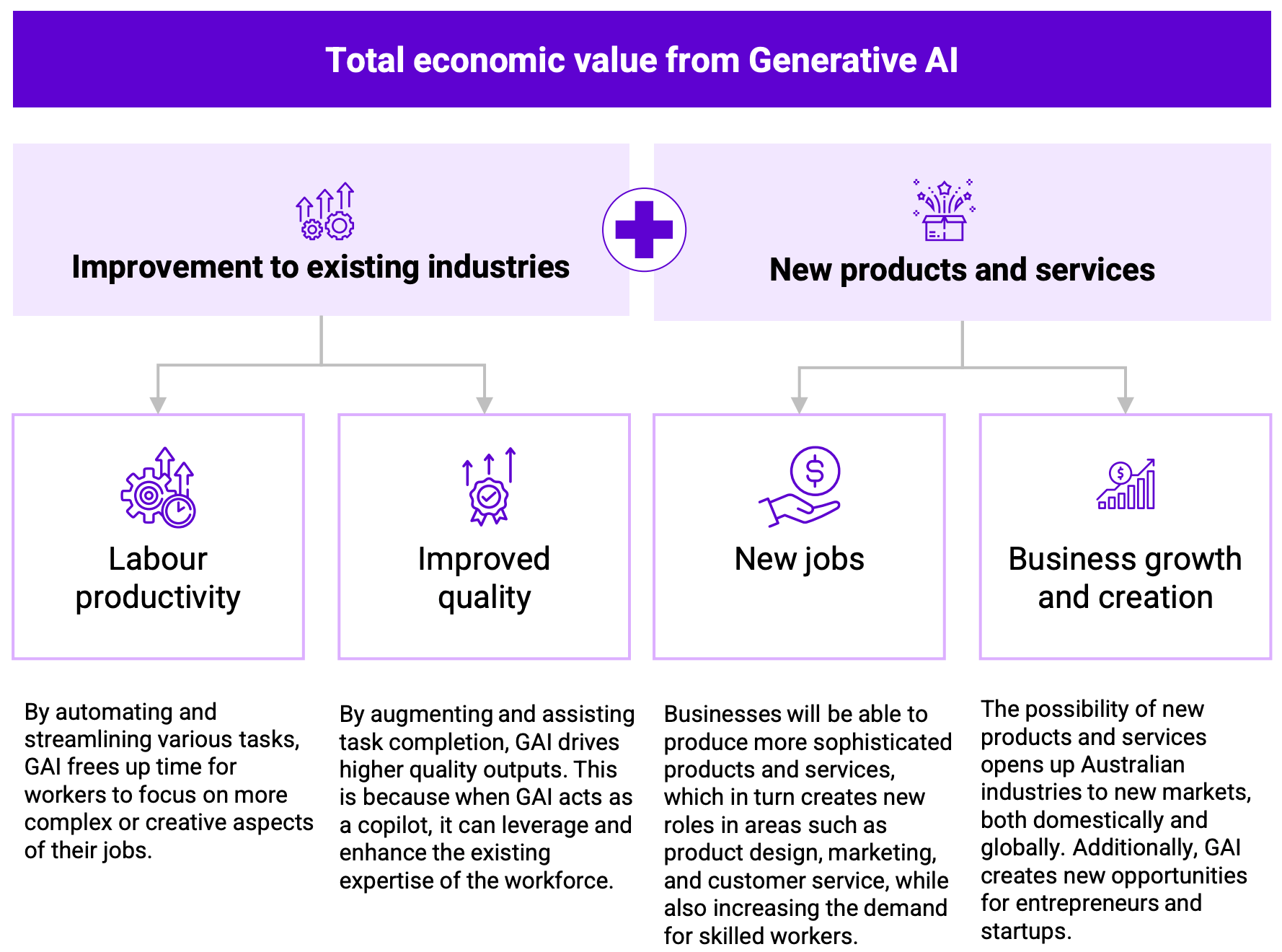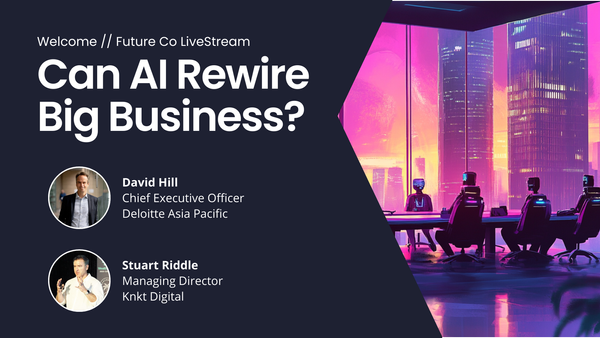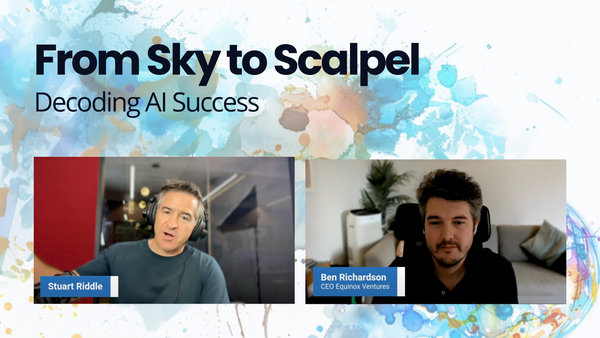Beyond the Hype, Real-World AI Impact
Language models like ChatGPT and custom GPTs aren't just generating witty tweets anymore; they're revolutionising workplaces across industries. Here's real-world examples of teams churning out personalised content, nurturing leads with laser focus, and tackling inquiries with superhero speed.

Whispers of an AI revolution might fill the watercooler, but forget futuristic predictions. Right now, ChatGPT and custom GPTs are quietly boosting team efficiency in ways you never imagined.
Why Embrace AI?
AI adoption, while not lightning-fast, is picking up steam.
- Studies sing AI's praises, showing employees using AI assistants complete more tasks, 25% faster, with higher quality results.
- Microsoft's recent study claims ChatGPT boosts knowledge worker speed by 37% and quality by 40%, especially benefiting new or less skilled talent. 85% report faster first drafts, while 72% cite reduced mental effort on mundane tasks.
That's a compelling message for business leaders.

If you need help turning AI concepts into economic value, let's talk. Or book a 60-minute consult for in-depth advice.
From Hype to Hands-On: Real-World Examples
Let's ditch the theory and get practical. How is AI helping companies be better at what they do, and improve the bottom line?
Constellation
is increasingly integrating AI into their marketing workflows, overcoming the challenges of a traditionally slow corporate culture. By embracing GPT-4 for daily tasks, they’ve observed ‘significant’ operational efficiency increases and an increased pace. Their AI kit includes:
- Copywriting chameleon: A custom GPT mimics writing styles, so content production can continue even when staff are on leave.
- Video storytelling: A custom model analyses their library of case studies and crafts video scripts, emails and social content.
- Automation: Zapier and GPTs collaborate on email writing and competitor analysis, multiplying output and efficiency.
- PR powerhouse: Customised GPTs identify key B2B sites for PR, automating emails, and managing communication.
Clay
a sales automation company leverages AI internally to enrich sales contacts and boost productivity. Here's the lowdown:
- Data-driven signups: Web scraping teams up with a custom GPT to enrich product signups with valuable details.
- Personalised engagement: AI uses this intel to generate personalised messages for inbound enterprise leads, helping nurture them towards conversion.
- Phone insights: Customer calls are recorded and analysed by GPT, extracting product feedback and valuable insights.
They're also building efficiency tools:
- Support load: A custom GPT tackles technical inquiries, reducing reliance on support teams.
- On-demand content: Generative AI enables on-the-fly content generation from use cases and topics, enhancing operational efficiency and market responsiveness.
Nordiska Galleriet
a Swedish homewares company, uses a GPT-powered search engine to optimise product copy in five languages simultaneously. The results are stunning:
- 95% cheaper eCommerce copywriting.
- 5-10x faster production compared to manual processes.
See a Pattern?
In all the examples above, companies aren't just using AI for witty chats; they're strategically leveraging language models to codify internal knowledge and scale beyond one-on-one AI interactions.
This isn't science fiction; a progressive approach, documented in our AI Maturity Matrix, unlocks game-changing possibilities for your organisation.
Innovate, don't stagnate.
— Stuart
Ps. If you missed our HR + AI article and checklist, download it here.
If you need help turning AI concepts into game-changing solutions, let's talk. Or book a 60-minute consult for in-depth advice:




